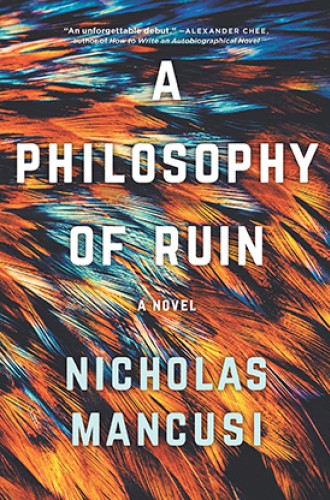Do people have free will? That’s the question at the heart of Nicholas Mancusi’s debut novel.
The story follows assistant philosophy professor Oscar Boatwright as he struggles through a rapid-fire barrage of miseries and mistakes. His mother dies in the novel’s opening sentence. His father goes broke. His sister reveals that she’s getting a divorce. Oscar mourns, gets drunk, and sleeps with a young woman. Then he discovers the woman is both his student and an aspiring drug lord. She blackmails Oscar, and he runs drugs for her.
From there, the novel crashes through the guardrails, and Oscar plunges headfirst into a life of car chases and gunfights. Each twist flings him further from his staid academic existence and, more importantly, further from his sense of self. As the plot kicks into high gear and the book starts to resemble a Hollywood action movie, Oscar’s inner voice quiets. He presses forward almost as though he’s outside of himself. He stops acting as the author of his story and becomes a character within it, pushing blindly forward and observing his actions from a distance.





